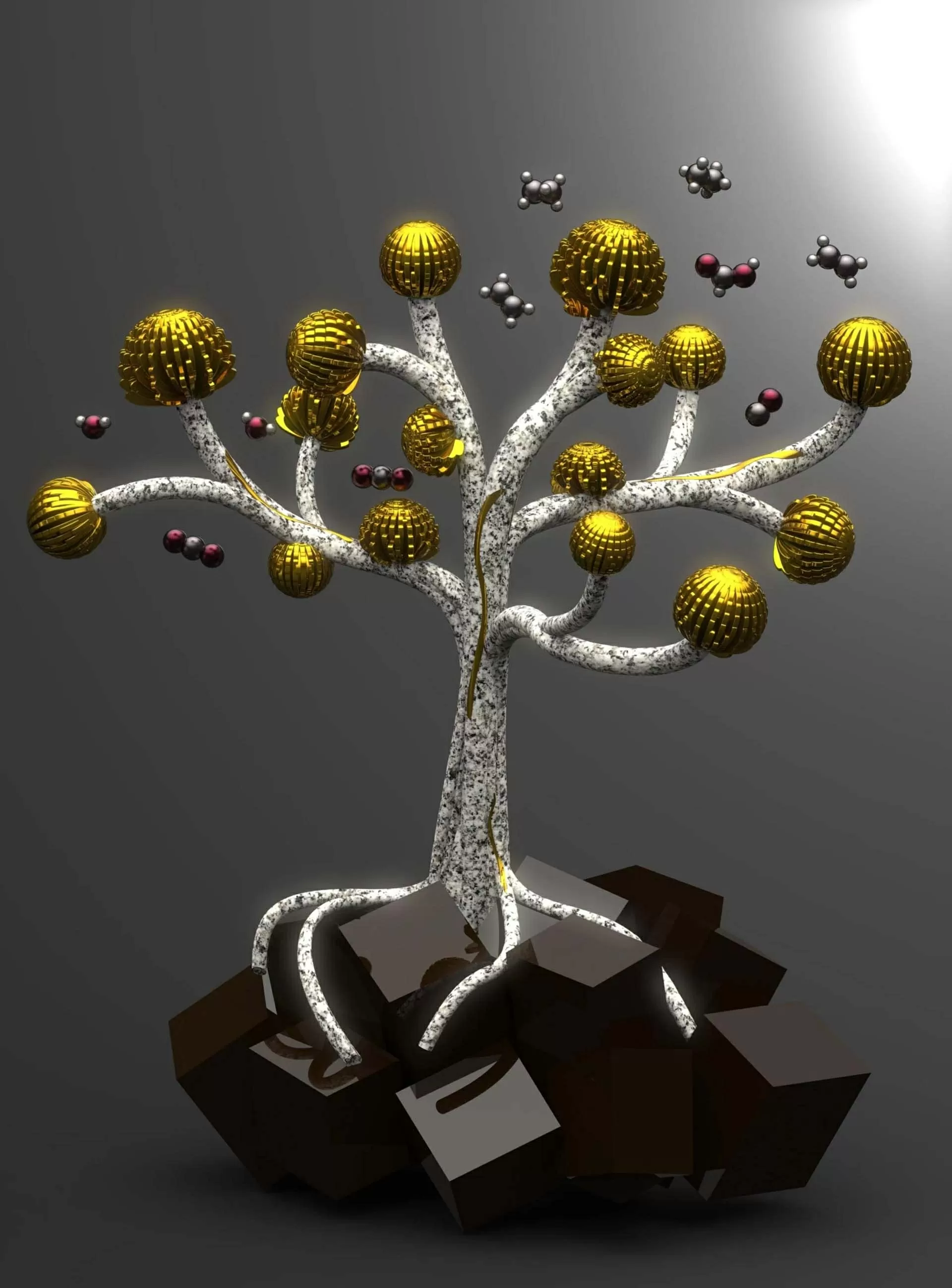Inspired by plant photosynthesis, researchers from the University of Cambridge and the University of California-Berkeley have developed an artificial leaf that uses sunlight to convert CO₂ into hydrocarbons, offering a sustainable alternative to fossil fuels.
 |
| Artificial leaf model. (Source: Cambridge University) |
Accordingly, tiny copper nanoflowers (a newly developed class of nanoparticles with a flower-like structure) are attached to an artificial leaf to produce clean fuel and high-value chemicals.
Unlike most catalysts that can only convert CO₂ into single carbon molecules, the device incorporates a light-absorbing leaf made from perovskite (a material used to make high-performance solar cells), with a copper nanoflower catalyst that converts carbon dioxide into more complex hydrocarbons with two carbon atoms, typically ethane and ethylene — raw materials for liquid fuels, chemicals and plastics.
According to reports published in the journal Nature Catalysis, virtually all hydrocarbons today originate from fossil fuels.
The research offers a cleaner alternative to this fuel because the methods developed by the Cambridge-Berkeley team create chemicals and fuels made from CO₂, water and glycerol, a common organic compound, without any additional carbon emissions.
In addition, to achieve higher efficiency and overcome the energy limitations of water splitting, the team added silicon nanowire electrodes that produced hydrocarbons 200 times better than previous water and CO₂ splitting systems. This research not only enhanced CO₂ removal efficiency but also produced high-value chemicals such as glycerate, lactate, and formate, which have applications in pharmaceuticals, cosmetics, and synthetic chemistry.
According to the authors, applying their research to more complex organic reactions opens the door to innovation in sustainable chemical production. With continued improvements, the research could accelerate the transition to a circular, carbon-neutral economy.
Source




![[Photo] Third meeting of the Organizing Subcommittee serving the 14th National Party Congress](https://vstatic.vietnam.vn/vietnam/resource/IMAGE/2025/4/2/3f342a185e714df58aad8c0fc08e4af2)

![[Photo] Relatives of victims of the earthquake in Myanmar were moved and grateful to the rescue team of the Vietnamese Ministry of National Defense.](https://vstatic.vietnam.vn/vietnam/resource/IMAGE/2025/4/2/aa6a37e9b59543dfb0ddc7f44162a7a7)



















































































Comment (0)